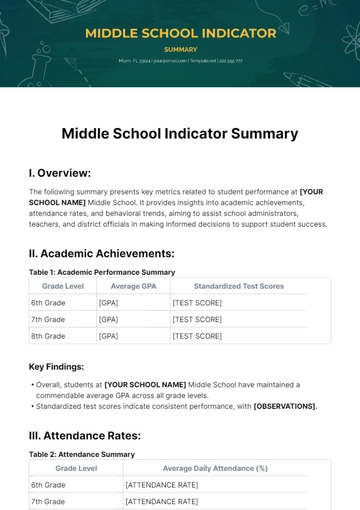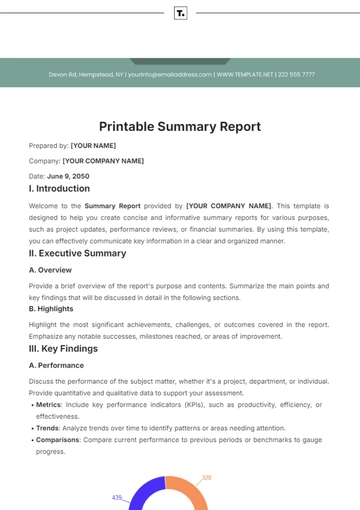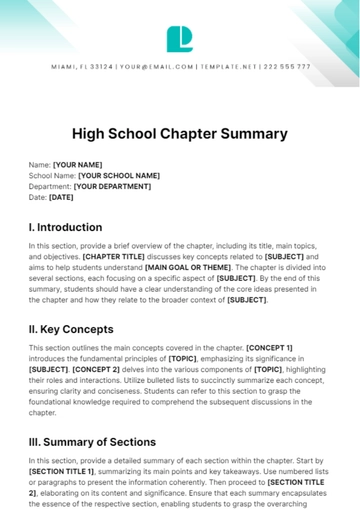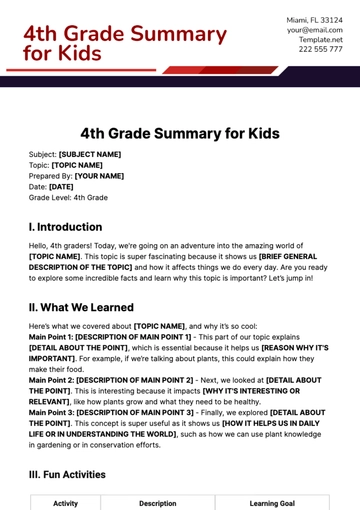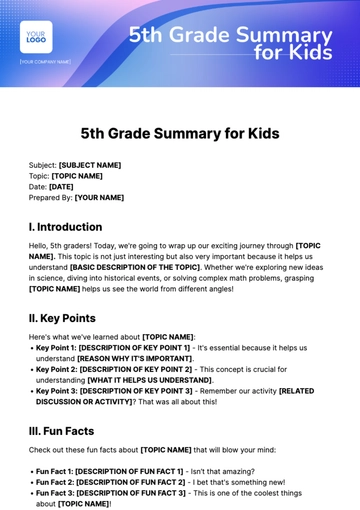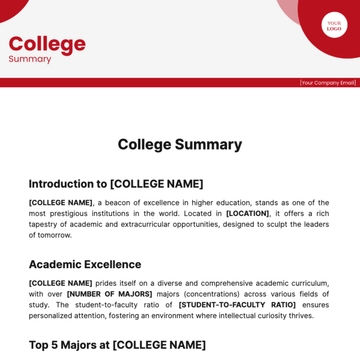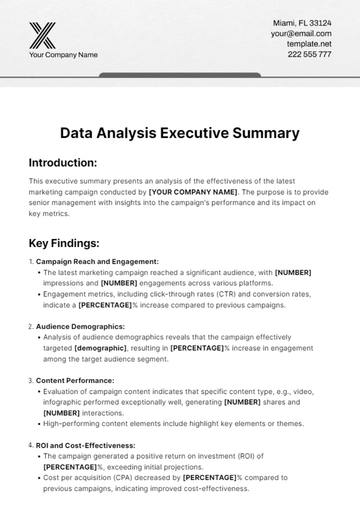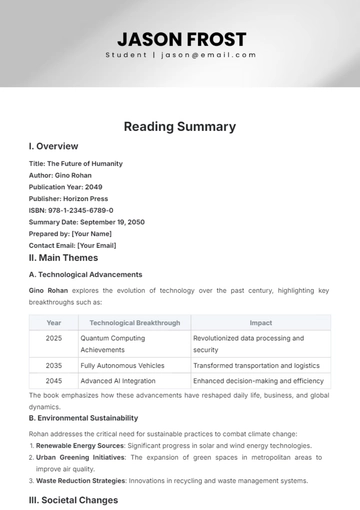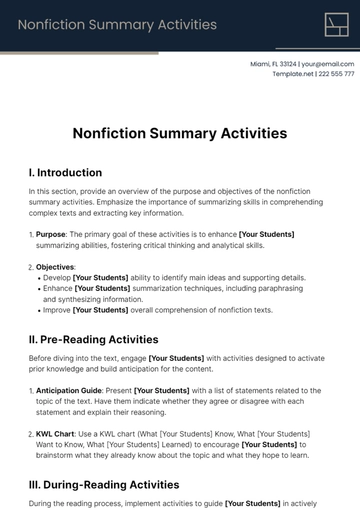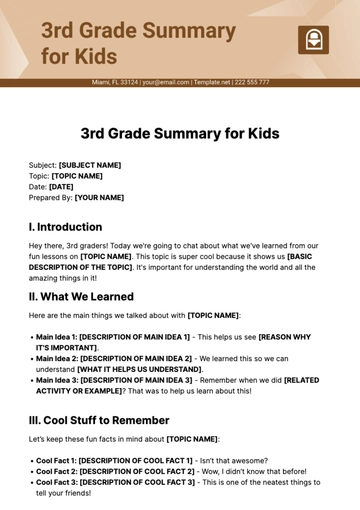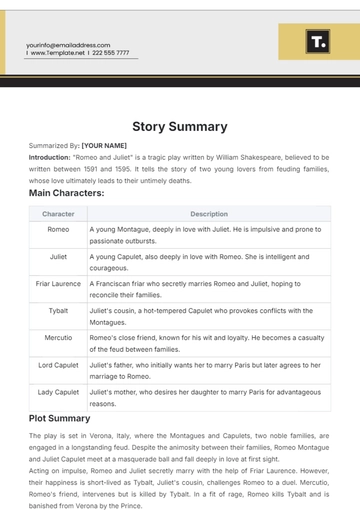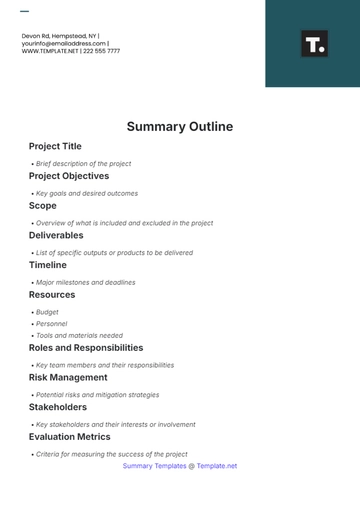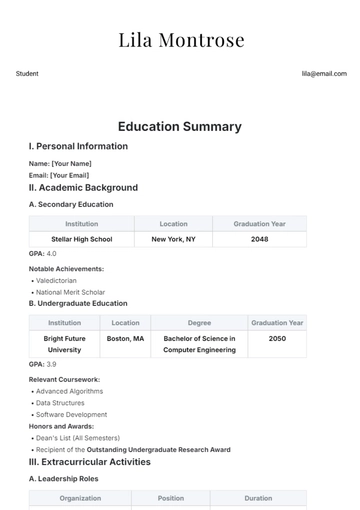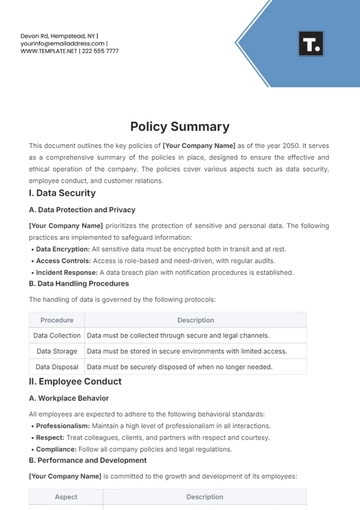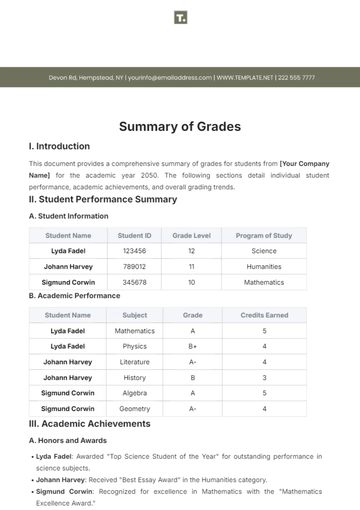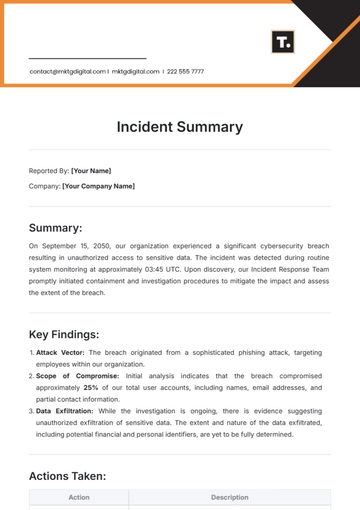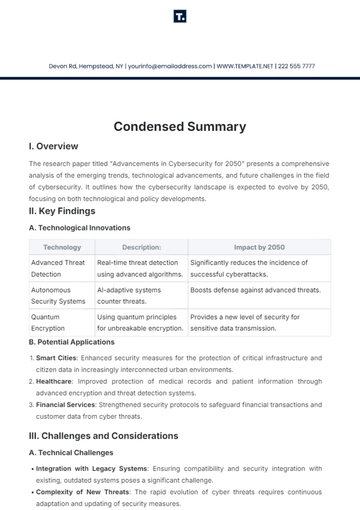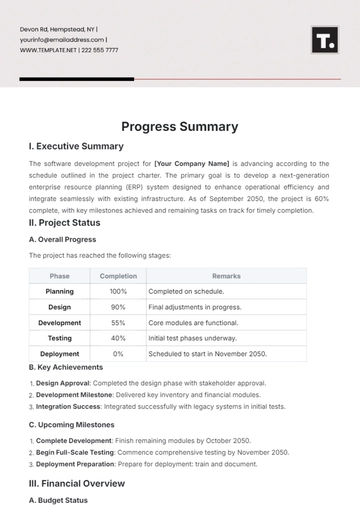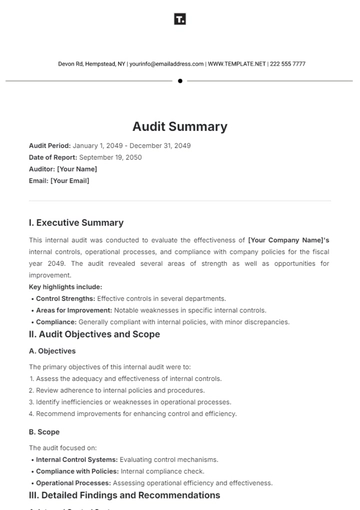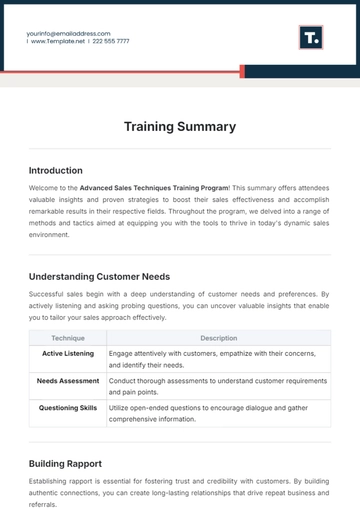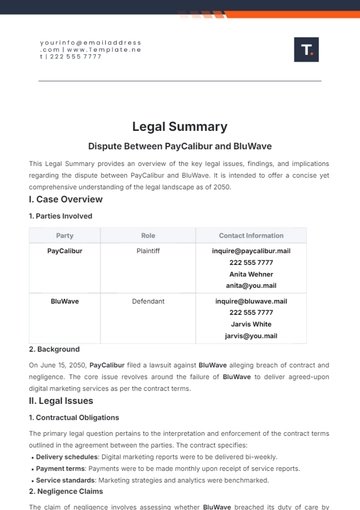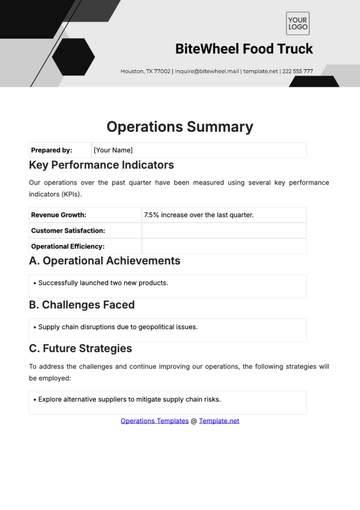Free Social Skills Summary for Kids
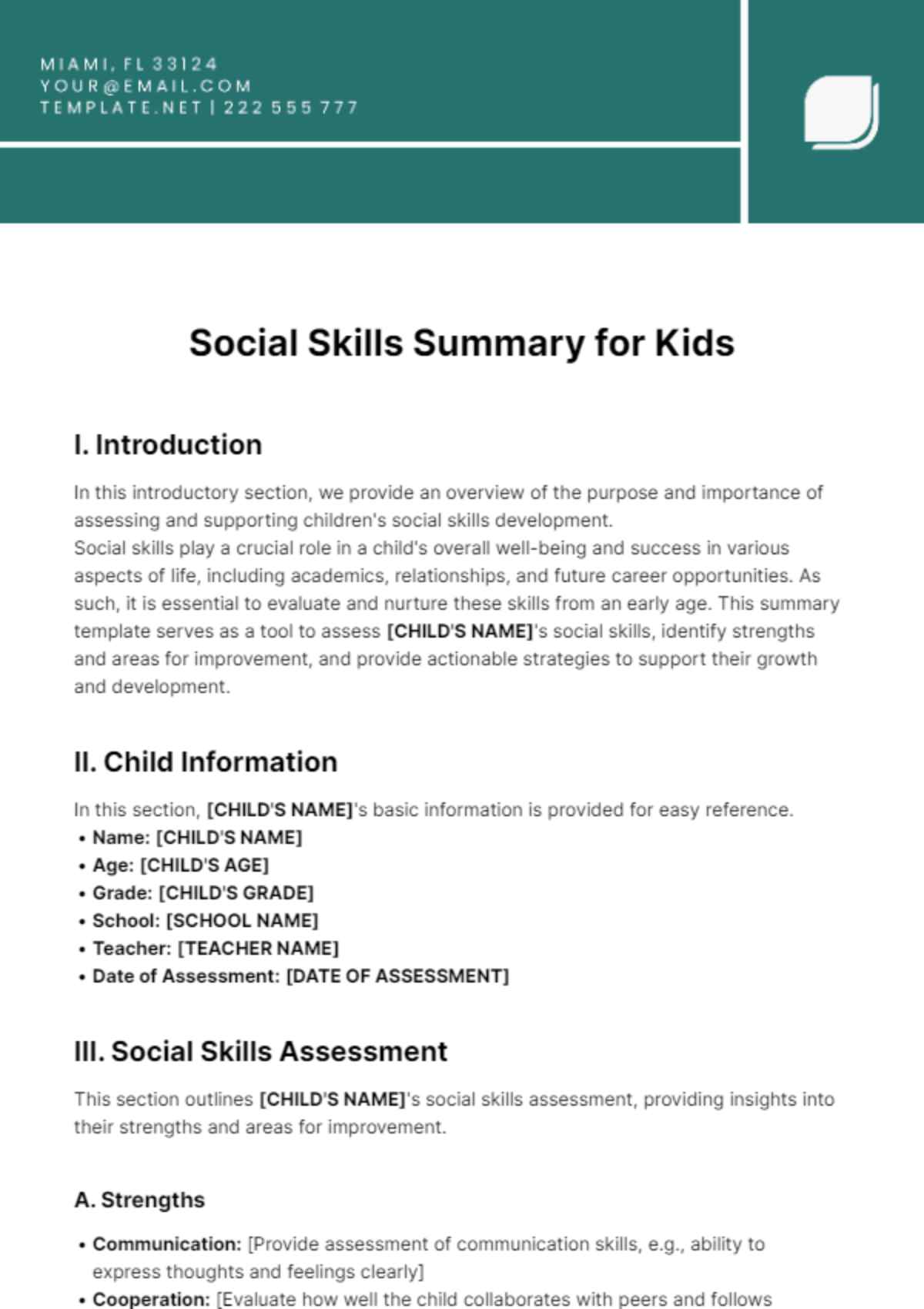
I. Introduction
In this introductory section, we provide an overview of the purpose and importance of assessing and supporting children's social skills development.
Social skills play a crucial role in a child's overall well-being and success in various aspects of life, including academics, relationships, and future career opportunities. As such, it is essential to evaluate and nurture these skills from an early age. This summary template serves as a tool to assess [CHILD'S NAME]'s social skills, identify strengths and areas for improvement, and provide actionable strategies to support their growth and development.
II. Child Information
In this section, [CHILD'S NAME]'s basic information is provided for easy reference.
Name: [CHILD'S NAME]
Age: [CHILD'S AGE]
Grade: [CHILD'S GRADE]
School: [SCHOOL NAME]
Teacher: [TEACHER NAME]
Date of Assessment: [DATE OF ASSESSMENT]
III. Social Skills Assessment
This section outlines [CHILD'S NAME]'s social skills assessment, providing insights into their strengths and areas for improvement.
A. Strengths
Communication: [Provide assessment of communication skills, e.g., ability to express thoughts and feelings clearly]
Cooperation: [Evaluate how well the child collaborates with peers and follows group rules]
Empathy: [Assess the child's ability to understand and share the feelings of others]
Problem-Solving: [Describe the child's aptitude for resolving conflicts and finding solutions to challenges]
B. Areas for Improvement
Social Initiation: [Identify any challenges in initiating social interactions or joining group activities]
Emotional Regulation: [Highlight any difficulties in managing emotions, such as frustration or anger]
Perspective-Taking: [Note any struggles with understanding others' perspectives or taking turns in conversations]
Friendship Skills: [Address any concerns related to making and maintaining friendships]
IV. Strategies and Recommendations
This section provides actionable strategies and recommendations to support [CHILD'S NAME]'s social skills development.
A. Classroom Strategies
Structured Activities: [Suggest incorporating structured activities to promote social interaction, such as group projects or cooperative games]
Visual Supports: [Recommend using visual aids or social stories to help [CHILD'S NAME] understand social cues and expectations]
Peer Modeling: [Encourage pairing [CHILD'S NAME] with peer role models who demonstrate strong social skills]
Positive Reinforcement: [Emphasize the importance of praising [CHILD'S NAME] for demonstrating desired social behaviors]
B. Home-Based Activities
Role-Playing: [Propose engaging in role-playing scenarios at home to practice social skills in a comfortable environment]
Family Discussions: [Suggest holding regular family discussions to encourage [CHILD'S NAME] to express thoughts and feelings openly]
Community Involvement: [Recommend involving [CHILD'S NAME] in community activities or clubs to expand their social network and build friendships outside of school]
Social Skills Groups: [Explore the option of enrolling [CHILD'S NAME] in social skills groups or workshops led by trained professionals]
V. Conclusion
In conclusion, fostering [CHILD'S NAME]'s social skills development requires collaboration between parents, educators, therapists, and the child themselves. By implementing the strategies outlined in this summary template and maintaining open communication, we can create a supportive environment that empowers [CHILD'S NAME] to thrive socially and emotionally.
Summarized By: [YOUR NAME]
- 100% Customizable, free editor
- Access 1 Million+ Templates, photo’s & graphics
- Download or share as a template
- Click and replace photos, graphics, text, backgrounds
- Resize, crop, AI write & more
- Access advanced editor
Introducing the Social Skills Summary for Kids Template from Template.net! This editable and customizable resource is designed to nurture essential interpersonal abilities in children. Crafted for simplicity and effectiveness, it's seamlessly editable in our Ai Editor Tool, ensuring tailored solutions for every young learner. Unlock their social potential today!
